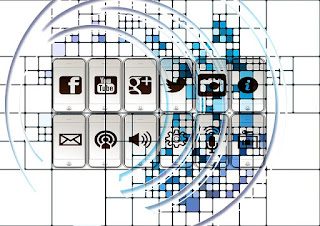A new president has been inaugurated. The 2016 presidential campaign showed us just how vulnerable our country is to the misuse of our now-ubiquitous internet and communications technologies. Consider some of the abuses we have seen:
- The Russian government hacked the Democratic National Committee servers.
- They fed those documents to Wikileaks with the deliberate intent to undermine confidence in our electoral integrity and perhaps to help Donald Trump win.
- Fake news stories circulated on Facebook and Twitter to misinform and incite higher levels of partisan anger.
- Google search results were compromised by partisan groups to bring up negative stories first when searching for information.
- The media provided virtually nonstop coverage of Donald Trump and his campaign across both television and mobile platforms.
- Twitter became Mr. Trump’s platform of choice to lead a cyber-bullying campaign against anyone who criticized him. And every Tweet became a news story.
- Smartphone videos and photos provided instant “evidence” at campaign events and rallies supporting partisan views that were shared on social media platforms.
We live in a world where the technology that was promoted to bring us together has instead driven us apart. Instead of connection we ended up with polarization. We live in our own social media worlds listening to those we agree with. We are beginning to doubt almost everything else we hear, see or read. We are living in a “post-fact” world.
 The campaign we have just witnessed could not have happened even as recently as fifteen years ago. We simply did not have the connectivity and bandwidth that allowed this digital assault to be shared instantly. The iPhone is only ten years old. Same for Facebook, YouTube, and Twitter. The connecting of the cellular network, the internet, and smartphones was the link that permitted this political monster to be born.
The campaign we have just witnessed could not have happened even as recently as fifteen years ago. We simply did not have the connectivity and bandwidth that allowed this digital assault to be shared instantly. The iPhone is only ten years old. Same for Facebook, YouTube, and Twitter. The connecting of the cellular network, the internet, and smartphones was the link that permitted this political monster to be born.
On May 24, 1844, the first message that was transmitted on the newly-invented telegraph was, “What hath God wrought?” We should be asking the same question now. We have created a superb, virtually real-time, global information network. It can be used for great good or it can do great harm. We have not lived with this technology long enough yet to know how to manage it or to manage ourselves when using it. The average time between checking our smartphones is now about six minutes. Ten times an hour we can get a jolt, a fix. When it comes to politics, it almost always zaps our nervous system. Like lab animals in some Skinner Box, we learn which buttons to push to get our hit. It makes us a feel crazy and we pay the price through our inability to focus, sleep, or think clearly.
In my view, smartphones are much more like television than they are like telephones. They are a screen that we seem powerless to ignore. We watch that small screen constantly, even while driving! And all of these hundreds of millions of screens demand new content which Facebook, Twitter and hundreds of other social media sites are happy to provide. This can be problematic at any time but it becomes a real worry when it disrupts our political systems. Behind all this low-cost access and seemingly free content is money - eyeballs on advertising. While there is legitimate discussion regarding the corrupting influence of money in politics, no one talks much about the corrupting influence of the money being made off of political postings on social media platforms.
We have come to a juncture in our connected world. The questions we should be asking ourselves now are: how do we protect ourselves from the inherent vulnerabilities of this information network? How can we differentiate real news from fake news? How do we make our systems less vulnerable to being hacked? How do we reign in the urge to be isolate ourselves in our like-minded camps? The challenges presented by our desire to be constantly connected will only grow. We can only hope to manage it better than we did in 2016.